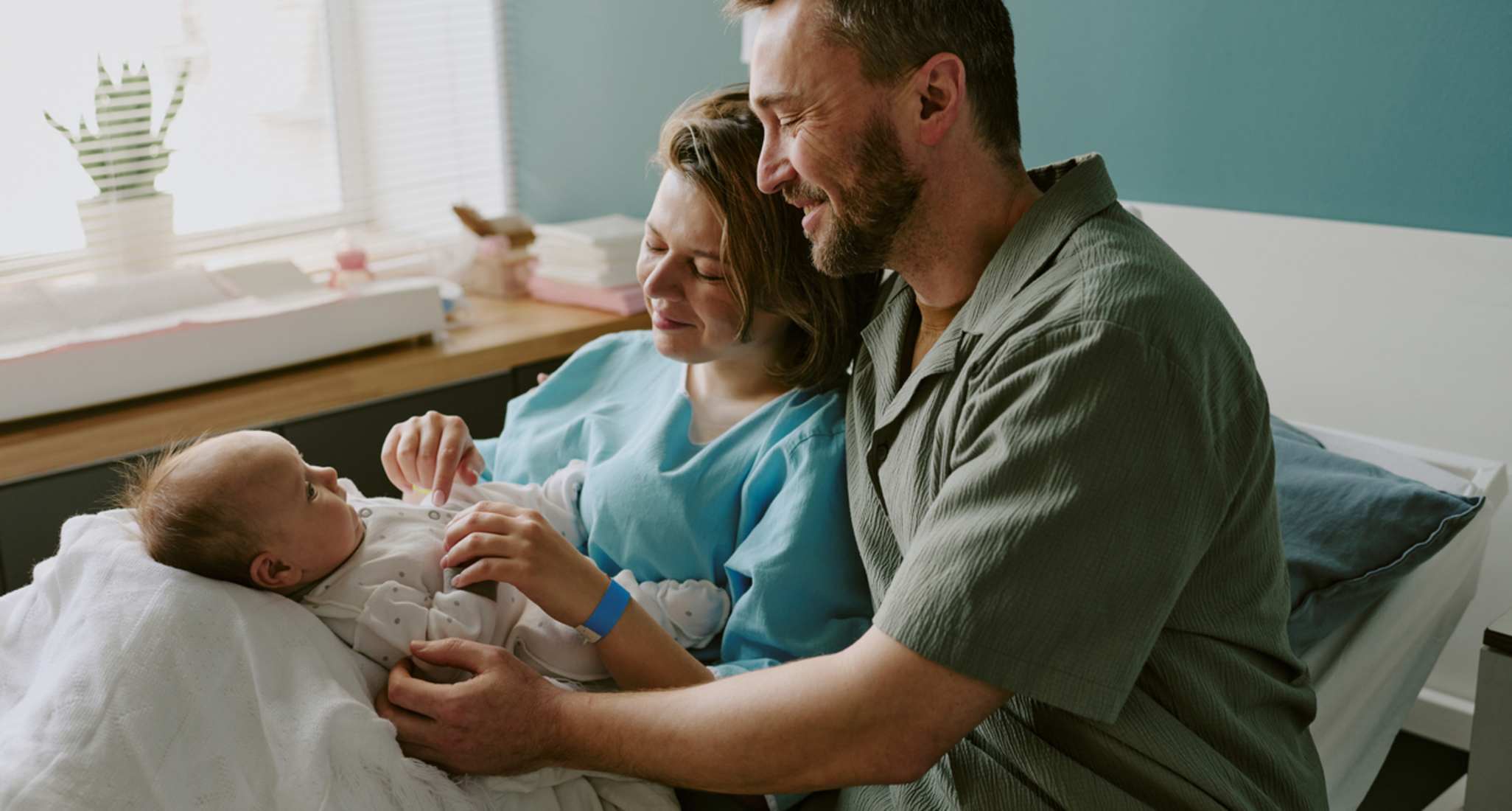Rooming-in: staying in hospital as an accompanying adult
Rooming-in lets you to stay in hospital with your child or close relative. Comparis explains whether basic insurance covers rooming-in costs.

03.11.2025

iStock/Nikola Stojadinovic
1. What is rooming-in?
Rooming-in lets you to stay in hospital overnight as an accompanying adult. The age of the patient does not matter – so you can stay with your child or a close relative. Rooming-in may be possible in the same room or a nearby room.
When rooming-in, the accompanying person also acts as psychological support. This can help the recovery process. However, they can also take on care tasks. Here, the specialist staff in the hospital will support the accompanying person.
Good to know: rooming-in is especially recommended for children up to nine years of age. Separation from caregivers and the unfamiliar environment can impede the recovery process.
2. How does rooming-in after birth work?
After childbirth, mothers are moved to the postnatal ward. In most hospitals, rooming-in is now standard in these wards. You are usually allowed to stay with your child around the clock.
Rooming-in allows parents and children to bond more closely. A close bond with parents after birth gives newborns a sense of protection and security.
Mothers can breastfeed their babies at any time. Close proximity to the infant promotes milk production. By taking care of their babies themselves, parents step into their parental role more quickly.
However, there is also a disadvantage to rooming-in. After childbirth, mothers are often exhausted and need time to recover. If the baby is with the mother, recovery is more difficult.
The type of room you will be accommodated in depends on the hospital and your supplemental hospital insurance. But in many cases, you can ask for a room upgrade in the hospital. Without supplemental hospital insurance, you have to bear the additional costs yourself.
Some hospitals also offer family rooms. These rooms usually allow both parents and any siblings to stay overnight. You must also pay for family rooms yourself, depending on the supplemental insurance cover you have.
What does 24-hour rooming-in mean?
After birth, there are two different types of rooming-in:
Partial rooming-in: the baby is not with you continuously. The baby is still partly cared for by specialists in the infant ward.
24-hour rooming-in: the baby is with you around the clock. You can take care of your baby completely independently. If necessary, you will receive support from the specialist staff.
Generally, you can decide for yourself which type of rooming-in you would like to use. However, there are exceptions – for example, if the baby is ill.
3. Rooming-in at hospital: are the costs covered by basic insurance?
Basic insurance does not usually cover rooming-in costs.
After birth, however, basic insurance pays for the hospital stay of the mother and child in the general ward – thanks to the maternity benefits, without charging the deductible and coinsurance. If the hospital offers free rooming-in, the health insurer will cover the costs.
Important: if the newborn needs hospital treatment due to an illness, the child’s health insurance will pay. This means that a deductible and coinsurance will apply.
The cost of an accompanying person varies from one hospital to another. The type of room also affects the cost. If the patient has supplemental hospital insurance, it usually pays a daily contribution towards the rooming-in costs of an accompanying person.
Good to know: some hospitals provide a single room for parents free of charge. The parents usually have to pay for meals.
4. Supplemental insurance for rooming-in: does such cover exist?
Semi-private and private supplemental hospital insurance often pays a contribution towards the rooming-in costs of an accompanying person. Depending on the health insurer, the contribution you receive for accommodation will vary. The number of days paid is usually limited.
Some supplemental hospital insurance policies only pay a contribution towards rooming-in for children. Others also contribute to overnight accommodation in the case of an adult patient. Check the conditions of your insurance policy.
Good to know: supplemental insurance policies usually have a qualifying period. This means that they only pay benefits after a predetermined waiting period.
5. FAQs on rooming-in
What rooming-in includes depends on the hospital. Usually, the accompanying person gets breakfast, but has to pay extra for other meals.
In the case of rooming-in after birth, the mother is overseen by doctors, nurses and a midwife. This includes advice and assistance in caring for the newborn child.
How long rooming-in lasts depends on the reason for and length of the hospital stay.
After birth, the following usually applies:
Natural birth: two to three days
Caesarean section: three to four days
The length of your stay also depends on the health of the mother and child.
How much a family room costs depends on the hospital. Your supplemental hospital insurance also affects the price. The table below shows examples of the cost of upgrading to a family room.
| Hospital | Upgrade costs |
|---|---|
| Winterthur Cantonal Hospital | Costs for the accompanying adult per night (room and breakfast):
|
| Lucerne Cantonal Hospital | Additional costs per night:
|
| Inselspital Bern | You can use private rooms as family rooms. Upgrade costs to a private room per night:
|
| Olten Cantonal Hospital | Additional costs for the stay:
|
This article was first published on 27.05.2010




